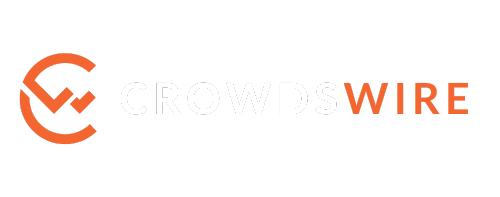AI in SEO, Artificial Intelligence (AI) has become one of the most transformative forces in digital marketing, with SEO (Search Engine Optimization) being a critical area of impact. As AI technology continues to advance, it’s changing the way search engines function, how users interact with search, and how marketers optimize content. From content creation to ranking algorithms, AI is reshaping the landscape of SEO. In this article, we’ll explore how AI is revolutionizing SEO and why businesses must adapt to stay competitive.
AI in SEO Content Creation
One of the most significant impacts AI has had on SEO is in the realm of content creation. Tools like ChatGPT and Jasper AI have allowed businesses to generate high-quality content efficiently. These AI-driven platforms can analyze vast amounts of data to identify trending topics, suggest relevant keywords, and even help write complete articles, blog posts, or product descriptions.
For SEO professionals, this is a game changer. AI tools can help marketers create content that is not only relevant but also optimized for search engines. They can analyze the search intent behind keywords, suggest headings and subheadings, and ensure the content is rich in the specific phrases users are likely searching for. For example, an AI-powered tool can scan the web for top-ranking articles on a given topic and suggest improvements, ensuring your content has the best chance of outperforming competitors.
Moreover, AI is also instrumental in ensuring content is structured properly. This means better use of metadata, proper heading tags, keyword placement, and more—key elements that search engines use to assess content relevancy and quality. With AI, these optimizations can be done quickly and accurately, improving the likelihood of ranking higher in search results.
AI in Search Engine Algorithms
The integration of AI in SEO to search engine algorithms is another significant shift in the SEO landscape. Google, for example, uses AI in several of its core algorithms, such as RankBrain and BERT (Bidirectional Encoder Representations from Transformers).
RankBrain, introduced in 2015, was Google’s first AI-powered search algorithm. RankBrain helps Google understand the context of words and phrases in search queries, moving away from simple keyword matching to a more sophisticated understanding of user intent. This change meant that content optimized for specific keywords could still rank poorly if it didn’t meet the user’s actual needs. Therefore, content relevance became more important than keyword density, forcing marketers to shift their SEO strategies accordingly.
BERT, introduced in 2019, further improved Google’s ability to understand natural language. BERT can interpret the nuances and context of search queries, even when the language used is complex or ambiguous. This AI advancement has led to better search results for long-tail and conversational queries, such as those used in voice searches. For SEO professionals, this means that optimizing content to cater to natural language and semantic search is now essential.
AI isn’t just limited to Google’s algorithms. Bing, YouTube, and other platforms are also integrating AI to improve search capabilities. These developments mean that traditional SEO tactics, like keyword stuffing, are becoming less effective, and creating content that truly addresses user intent is now crucial.
AI and Personalization in Search
AI’s influence on SEO goes beyond algorithms and content creation—it’s also driving personalization in search results. Search engines are now capable of delivering personalized search results based on a user’s search history, location, and behavior.
AI analyzes user patterns, preferences, and behaviors to deliver more relevant results. For instance, if a user frequently searches for vegan recipes, the search engine will start prioritizing vegan-related content in future searches, even if the specific search query doesn’t mention veganism. This personalized approach to search results increases user satisfaction and engagement, which, in turn, impacts SEO.
Marketers must recognize the power of AI-driven personalization and consider it when developing their SEO strategies. This could involve segmenting audiences and creating tailored content that appeals to specific user groups, ensuring that their content is favored in personalized search results.
Voice Search and AI
Voice search is one of the most prominent examples of how AI is shaping SEO. With the rise of voice assistants like Amazon’s Alexa, Google Assistant, and Apple’s Siri, more and more users are turning to voice search to find information. According to some reports, more than 50% of all searches are voice searches, and that number continues to grow.
AI is the backbone of voice search, and it processes natural language queries to deliver relevant results. This shift toward voice search requires businesses to optimize their content for conversational language, as users tend to phrase voice queries differently than typed queries. For instance, a user might type “best SEO practices” but ask their voice assistant, “What are the best SEO practices for 2024?”
To optimize for voice search, businesses need to focus on long-tail keywords, natural language, and answering specific user questions concisely. Voice search is closely tied to mobile search, so ensuring that websites are mobile-friendly and optimized for local SEO is also crucial.
AI and Predictive Analysis in SEO
AI-powered predictive analysis tools are helping marketers forecast trends and adjust their SEO strategies proactively. By analyzing large datasets, AI can predict shifts in search behavior, emerging keywords, and changes in search engine algorithms. This allows businesses to stay ahead of their competition by adapting their SEO efforts before these trends become mainstream.
For example, AI tools can analyze seasonal search trends and help businesses tailor their content calendars accordingly. If AI predicts a spike in searches for a particular product or topic, marketers can create content around that trend to capture the increased search traffic.
Furthermore, AI can help in monitoring competitors’ SEO activities. Predictive analysis tools can track changes in competitor rankings, backlinks, and content strategies, providing valuable insights that can inform your own SEO adjustments.
Practical Applications of AI in SEO
The practical applications of AI in SEO are vast, and marketers are increasingly integrating AI tools into their workflows to optimize performance. Below are some common uses:
- Automated Content Creation: AI tools can generate blog posts, product descriptions, and other forms of content, saving marketers time and ensuring consistent output.
- Keyword Research: AI tools like Ahrefs, SEMrush, and Moz use AI to identify valuable keywords, analyze search volumes, and suggest long-tail phrases to target.
- Content Optimization: AI can audit content for SEO, suggesting improvements to readability, keyword placement, and structure.
- Link Building: AI-powered tools can identify potential backlink opportunities and help automate outreach.
- SEO Audits: AI tools can perform technical SEO audits, identifying issues with site speed, mobile-friendliness, and Core Web Vitals that could affect rankings.
These applications enable marketers to streamline their processes, making SEO more efficient and effective.
The Future of AI in SEO
As AI continues to evolve, its role in SEO will likely expand even further. One future development is the increasing use of AI in voice search and virtual reality search. With more sophisticated AI, voice searches will become more accurate and context-aware, making it easier for users to find exactly what they’re looking for without typing a single word.
AI will also continue to enhance visual search capabilities, allowing users to search for products and information by simply uploading images. Companies that optimize their content for these new forms of search will be ahead of the curve.
Moreover, AI’s ability to learn and adapt will make search engines even smarter. Google’s algorithms will become better at understanding context and delivering results that align with user intent. For marketers, this means an ongoing need to focus on high-quality, relevant content that meets the needs of users, rather than simply trying to “game” the system.
AI is rapidly transforming SEO, and businesses that embrace AI-driven strategies will find themselves better equipped to rank higher in search engines and drive more organic traffic. From content creation and personalization to voice search and predictive analysis, AI offers numerous opportunities to optimize SEO efforts efficiently and effectively. As AI technology continues to advance, staying informed and adaptable will be key to thriving in the ever-changing world of search engine optimization.
By leveraging AI, marketers can create smarter, more targeted SEO strategies that deliver better results, ensuring their websites remain competitive in the evolving digital landscape.

